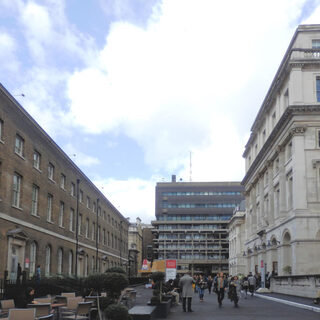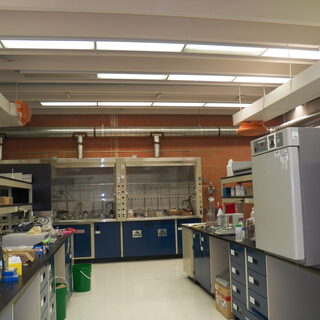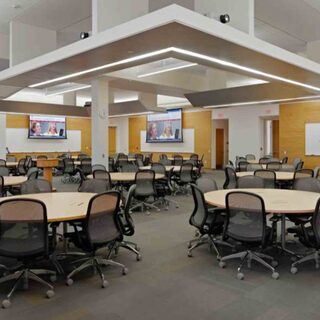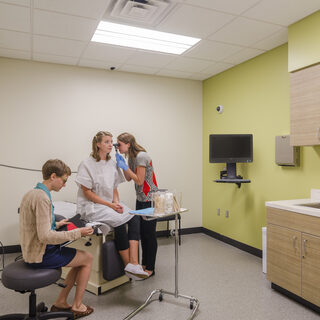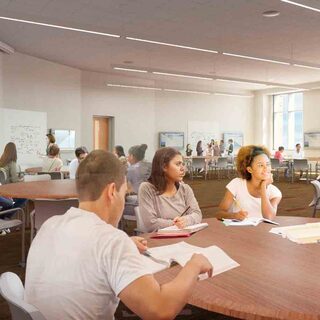Tradeline's industry reports are a must-read resource for those involved in facilities planning and management. Reports include management case studies, current and in-depth project profiles, and editorials on the latest facilities management issues.
Latest Reports
Introducing Space Optimization and Sustainability at Historic King’s College
London’s King’s College has tapped building information systems and financial data to maximize the use of space while reducing energy costs and carbon emissions by employing three strategies: leveraging shareable and flexible space, challenging assumptions about the need for individual offices, and having leaders set progressive examples for other staff. Efficiently planned and utilized spaces are inextricably linked with sustainability for growing academic institutions like King’s College, especially when the cost of property is expensive, according to architect and planner Ian Caldwell.
First-Year Biology Teaching Labs
The University of Toronto, Mississauga, re-imagined its first-year biology teaching labs to update the space and encourage a more experiential learning environment that will hook students on biology and engage the entire building in what goes on there. They also need to accommodate classes of as many as 48 students, which their former space could not.
Medical School and Health Science Trends and Mandates
Increasing class sizes, curricular changes, and medical education mandates continue to influence the design of health science and medical education spaces, which means they must address the need for shared areas, systems-based learning and flexibility/adaptability, according to Scott Kelsey, managing principal, and Jonathan Kanda, principal, with CO Architects.
Heritage College of Osteopathic Medicine, Dublin Campus
Three buildings in a 14.8-acre former business park—an office building, a garage, and an entrepreneurial center—were renovated to create a new Central Ohio campus of the Ohio University Heritage College of Osteopathic Medicine.
Revolutionizing Undergraduate STEM Education at Virginia Tech
Responding to the call to reinvent university science instruction, Virginia Tech’s new classroom building is poised to create “a bona fide learning revolution.” Slated for completion in 2016, the 73,400-sf facility will offer flexible, innovative teaching spaces that are “radically different” from anything previously seen on the Blacksburg campus, according to Jill Sible, assistant provost for undergraduate education at the largest producer of STEM (science, technology, engineering, math) degrees in the state.

